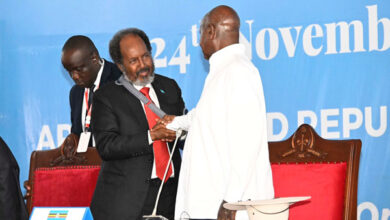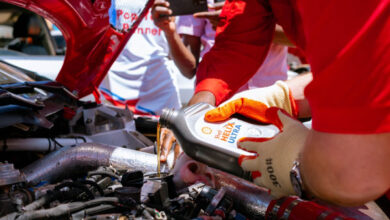Action Against Hunger sweeps hunger out of refugee settlements in West Nile
AAH’s efforts have been crucial in fostering self-reliance, empowering these communities to become more food-secure and economically independent.
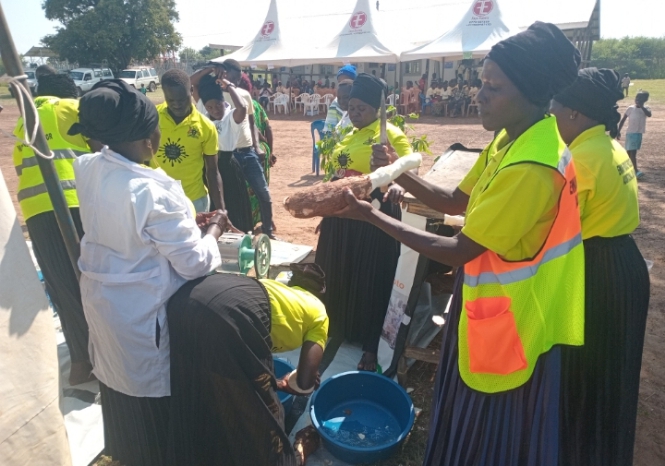
Arua: In response to a reduction in food rations by the World Food Program, many refugees and host communities in West Nile’s Rhino Camp, Lobule, and Bidi Bidi refugee settlements have turned to farming.
Initially starting on a small scale, they are now engaging in large-scale agricultural practices. With support from Action Against Hunger (AAH), farmers have gained new skills and knowledge to improve their productivity.
In Bidi Bidi, Maliamungu Moses, a group member from Soburu in Wanyange (Rhino Camp), shared how AAH’s support has transformed rice production in their area. Before AAH’s intervention, farmers lacked knowledge in proper rice farming techniques.
Through training on land selection, preparation, and weeding, as well as the provision of a tractor, they have been able to expand their rice cultivation. This season, they have ploughed more than 77 acres and harvested over 16 tons of rice, a significant improvement from previous yields.
AAH has also helped the farmers organize into cooperatives, which is widening the market for their products. This has allowed the community to market rice more effectively at the family level and collectively under cooperatives, strengthening their economic foundation.
In Lobule, Tabu Saidi, chairperson of the Jujumbu Multipurpose Cooperative, explained that farmers now grow rice, cassava, sesame, and beans, benefiting from AAH’s support. This support has not only improved their farming practices but has also diversified the local diet, contributing to better nutrition, especially for children.
Saidi shared how an exchange visit to Nwoya district inspired them to adopt better farming methods, leading to improved yields. As a result, malnutrition, including Kwashiorkor, is no longer prevalent in the area. Additionally, farmers now sell their produce to cover family necessities, such as school fees and medical bills.
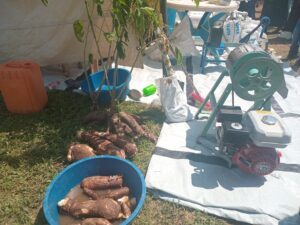
In Bidi Bidi, Nadia Bint Yasin, the secretary of the Ewafa Produce, Processing, Value Addition, and Marketing Group, highlighted how AAH has helped their group process and pack cassava, adding value to it. With the assistance of AAH, they now use machines to process cassava, extending its shelf life and reducing spoilage. Their involvement in value-added production has enabled them to generate more income and support their families better.
Ejoroga Patrick, a program officer at Action Against Hunger, explained that the organization works closely with UNHCR and local governments to support both refugees and host communities.
Although some of the earlier projects supported by UNHCR and the World Food Program have ended, AAH continues to coordinate agricultural efforts in regions such as Adjumani, Palabek, Palorinya, and Kiryandongo. Over 1,050 farmers have received training and inputs such as seeds, and the rest are scheduled for support in the upcoming year.
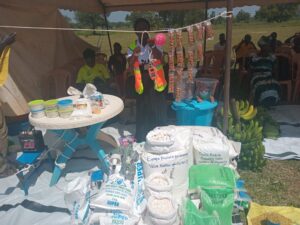
AAH has also helped farmers build their capacity in both production and value addition. To further support farming, two tractors have been provided for shared use in Bidi Bidi, Imvepi, and Rhino Camp. In total, 390 acres of land have been opened for cassava and rice cultivation, signaling a shift towards more commercial farming practices.
Vuni Vuyaya, the Deputy Resident District Commissioner for Yumbe, commended the farmers for their progress and encouraged them to continue producing food.
AAH’s efforts have been crucial in fostering self-reliance, empowering these communities to become more food-secure and economically independent.
Do you have an advertisement or article you want to publish? Mail us at theugreports@gmail.com or WhatsApp +256394700683.


